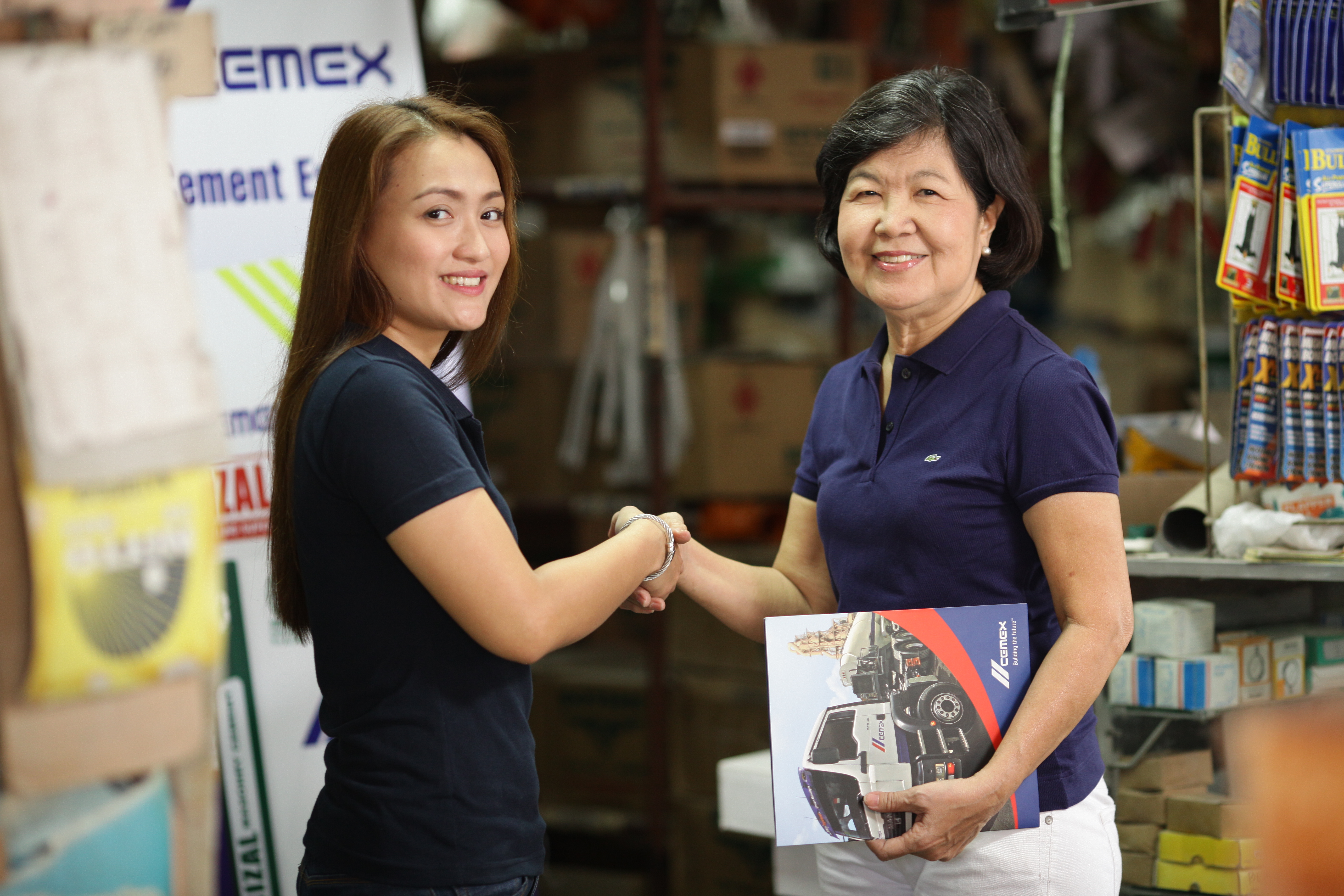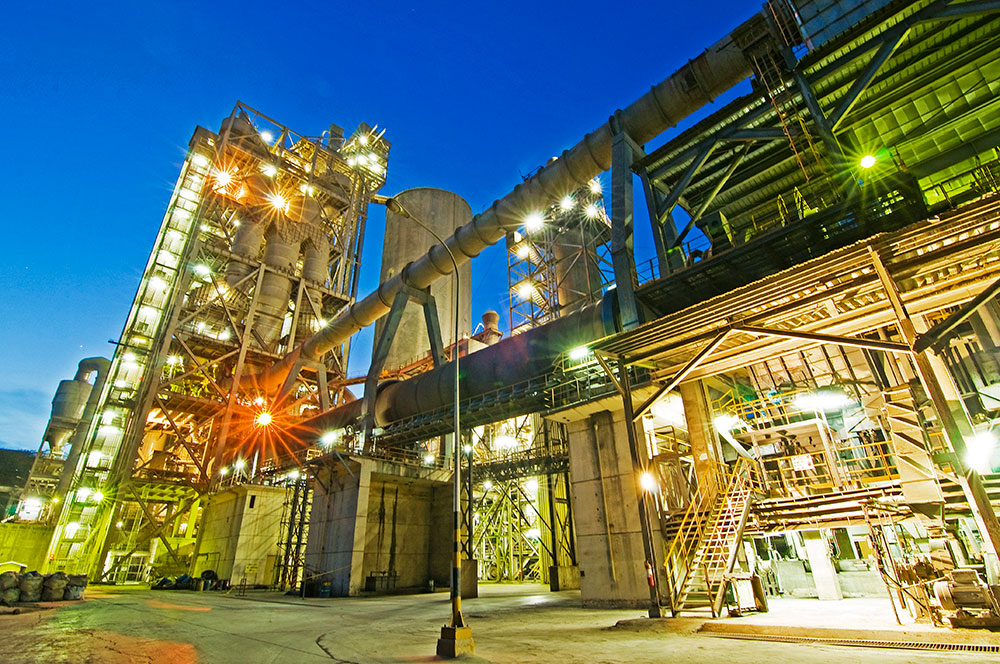It has been 110 years since CEMEX began manufacturing its first bag of cement in 1906 with the opening of the Cementos Hidalgo Plant in Northern Mexico. Numerous bridges, pavements, buildings and homes across the globe have been built since. They have, indeed, connected the world. Still, the global building materials company sees that there is more work to be done in the future.
In 1997, the global cement giant acquired Rizal Cement Corporation (now Solid Cement Corporation) in Antipolo. This was the first major acquisition of CEMEX in the Philippines. Next was the acquisition of Apo Cement Corporation in 1999.
Today, CEMEX continues to play a major role in the construction industry. Its core business is in Visayas and Mindanao with an allocation of 70 percent in total volume output. CEMEX has a total cement capacity of 5.7 million metric tons annually.
Among the projects where CEMEX was a major contributor in the supply of cement are Shangri-La in Boracay, Misibis Bay Resort in Albay, Bellevue Resort in Bohol and other world-class resorts in the Visayas and Bicol region. CEMEX has beefed up its construction portfolio by supplying for many important structures in most of the Visayas region such as power plants, bridges, commercial and residential buildings, hospitals, and national, provincial and coastal roads. In Mindanao, where they are relatively new in the market, they are eyeing to support the government’s nation-building efforts through various infrastructure projects.
While in Luzon, CEMEX continues to be a major player with its cement manufacturing facility in Antipolo and two terminals located in Batangas and Manila North Harbor. CEMEX supplied a majority of the cement used for the construction of Skyway Stages 1 and 2. Now on its 20th year in the country, CEMEX Philippines continues to innovate itself to create more efficient ways of building. “The good thing about having this big global footprint and long history is that we are able to share a lot of things with one another especially now with technology. We are learning from some of our colleagues in Europe and South America on how to build roads and houses differently,” said Roberto Martin Javier, vice president for commercial of CEMEX Holdings Philippines.
Technology has provided the arm for them to achieve their goal of building a better future with high-strength concrete. According to Javier, CEMEX has the technology to speed up the process of building pavements and houses. “With Promptis concrete technology, we have found ways to build roads faster. This allows roads to be accessible to traffic within 24 hours. Promptis is a fast-setting concrete that allows structures to be used within 24 hours,” he said. The same technology was used for the road reblocking on EDSA and the rehabilitation of the Ayala Bridge last year.
“It’s the fact that it’s a big global company present in over 50 countries with highly skilled professionals who are all sharing best practices and processes available that helps our engineers produce the highest quality of cement,” he added.
But what makes CEMEX Philippines stand out in the industry is their unique distribution strategy. Unlike in other countries where they rely on distributors to move their products from the plants to the customers, CEMEX Philippines chose to do a “Direct Sales Approach” wherein they sell directly to the smallest construction companies— the Hardware stores. “With CEMEX, we want to have a relationship with the hardware stores and retailers so that we know what the customers are looking for. Are they looking for a different kind of cement? What are the problems or issues of masons and foremen? That type of selling approach has allowed us to understand the market better,” Javier explained.
The said approach is CEMEX’s means of shifting the product from being just a commodity where only price and availability matter. CEMEX placed a different component in the equation: Service.
“Service is a key component. In order for us to be differentiated, we had to hire more sales people. We had to provide them with a lot of training on negotiations and relationship-building. And that makes us different from our colleagues in other countries,” he said.
With this, a customer service center was created. “We are the only one in the cement industry in the Philippines that has a fully-integrated customer service center,” he said. A dedicated team in charge of end-to-end process addresses customer concerns related to order placing, follow ups, complaints and payments. A system was put in place which is linked to logistics for prompt distribution of cement to different parts of the country.
Also, CEMEX deploys back-end support nationwide to customers who are in need of technical know-hows about their products. This resulted to a more personalized relationship with their customers.
“The benefit of our customer service is that people can interact through our multichannel service center. In our case, the hardware store will call the service center and place an order. Next is that they pay then we deliver within 24 hours. We will fulfill that commitment and we also have a tracking system in place [to monitor the progress of delivery],” he said.
With infrastructure high on the Duterte administration’s priority list, CEMEX recognizes its role in building the nation together. The 10-point socio-economic agenda is to raise the annual infrastructure spending to at least 5 percent, with public-private partnerships (PPPs) playing a key role. CEMEX wishes to participate in these projects with a defined role. Whether they become providers of technology, advisors or even contractors, they are more than willing to lend a hand.
“In PPPs, we are open to offering the technology that we have. We are proactively introducing it to DPWH (Department of Public Works and Highways). We’re also approaching the housing sector, NHA (National Housing Authority), to introduce the technology which can help developers build houses faster in a cost-effective way. In a lot of cases, we talk to the contractors or developers participating in PPP as providers. We could offer our cement, we could offer aggregates, or admixtures and even our ready-mix business,” Javier said.
In fact, CEMEX significantly contributed to the completion of Deca Homes Resort and Residences, a low cost housing project in Davao City. Deca Homes was awarded as finalist in the Social Value category in the recently concluded CEMEX Building Award. The citation was given by CEMEX global committee for the purpose of distinguishing the best in Architecture and Construction around the world.
With Rizal and APO cement being legacy brands, Javier points out that it has been a rewarding experience for CEMEX to be able to lend their expertise and knowledge with the end-product of fortifying a country such as the Philippines. “We take pride in seeing our bags displayed in many projects,” he said.
Hence, the future is still brimming with possibilities for CEMEX. “As a global company, we have always been dynamic and aggressive. CEMEX in the Philippines sees a lot of potential and opportunities in this market. Our plants will continue to grow our sustainable footprint in the country. We will continue to try to understand our customers and their needs better. Hopefully, we may be able to provide more products, technology, solutions and services. We want to transform ourselves from being perceived just as a cement supplier into a building solutions provider. The future is looking brighter for our company and for the industry as a whole,” Javier said. ADVT
Vanessa B. Hidalgo


